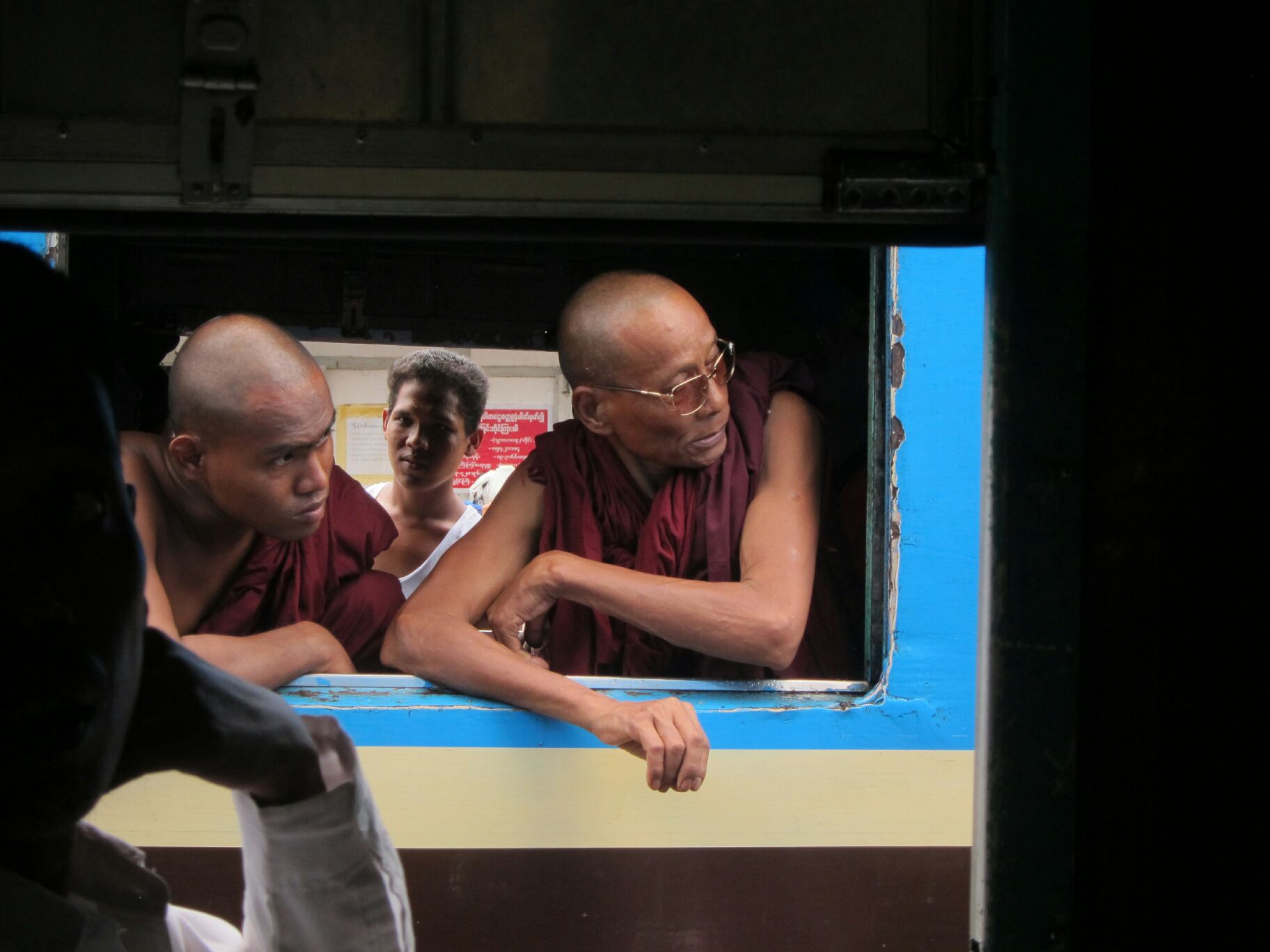When we decided, against all advice, to exclusively travel around Myanmar by train, we did so under the pretense that we were making a huge mistake. But as it turned out, everybody else was wrong. And so here I am to write about our experience, which was so far from negative it became a highlight of our 28 days in the country.
Our 8-train route was as follows:
Yangon to Pyay
Pyay to Bagan
Bagan to Mandalay
Mandalay to Thazi
Thazi to Mawlamyine (exchanging in Bago)
Mawlamyine to Dawei (exchanging in Ye)

Yangon to Pyay
In The Great Railway Bazaar, Paul Theroux writes of the Yangon (then Rangoon) trains,
“There was one class, (the ticket officer) said. Wooden seats, broken windows, no berths, no bedrolls, no dining car.”
Things had changed slightly. Now we could choose either lower or upper class, with the price being either two dollars or four dollars. We chose upper, since the seats were cushy instead of wooden. Had we chosen the wooden seats, I imagine at best we’d have bruises, and at worst shattered pelvises. Unlike when Theroux traveled (the book was published in 1975), the windows were not broken, and it didn’t matter that there wasn’t a dining car, because at each station men and women would board with swags of food for sale. Women balanced impossibly large amounts of stuff on their heads. The largest ‘hat’ we saw was a huge cauldron of soupy noodles, and atop the cauldron were condiments, cutlery and bowls. The train rocked and shook furiously, and the women glided through the coaches, never stumbling.
Theroux goes on, “Five minutes from the station you are in the country, a low swampy rice-growing area beside the Pazandaung Creek, where in the courtyard of the monasteries the monks are at prayer, and crossing the fields are processions of people – schoolchildren with satchels, office workers setting out in white shirts, farmers with mattocks – the early morning march in the tropics to the tune of temple bells.”
It would be interesting to travel back to 1975 and talk to somebody in Yangon. I’m sure that they’d find it hard to believe that in the impossibly distant sounding future of 2015, there wouldn’t actually be much difference. Myanmar seemed to be paused in time.
Continued on our blog - HERE